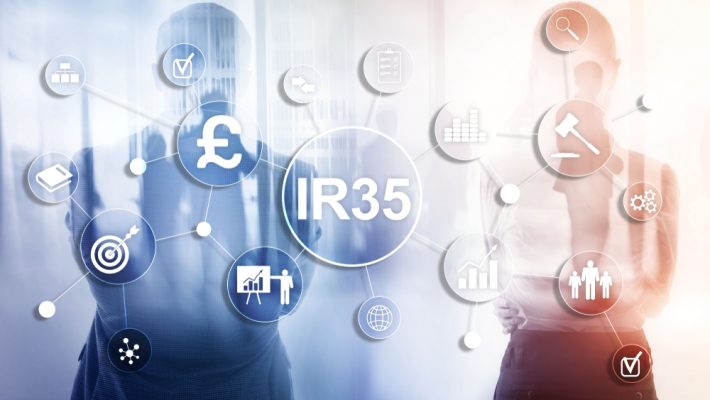The off payroll working rules – commonly known as IR35 – were introduced by HRMC in 2000 to tackle tax avoidance by workers supplying their services to clients through an intermediary. Such workers are referred to by HMRC as ‘disguised employees’ as they don’t meet the HMRC definition of self-employment and as a result tax and National Insurance Contribution (NIC) aren’t paid correctly. The rules are designed to ensure workers, who would be classed as an employee if they were contracted directly, pay broadly the same tax and NIC as employees.
If a worker is deemed ‘inside of IR35’ they are required to pay tax at the same rate as an employee in the appropriate pay bracket. If they fall ‘outside of IR35’, they are considered self-employed and can tax themself. Those ‘outside of IR35’, are responsible for paying their taxes on time.
‘Deemed employees’ do not reap the same benefits as typical employees. For example, those who fall into IR35, pay the equivalent in tax of a typical employee but are not entitled to sick pay, holidays or pensions.
How is IR35 changing?
The rules of IR35 are not changing, but the administration of the legalisation is.
It is proposed that the assessment of whether IR35 applies will fall onto the private sector end user of the worker’s services for all payments by medium and large businesses from 6 April 2021.
Where the end user decides that IR35 does apply, the fee payer – which may be the end user, a recruitment agency or a third party paying the intermediary – will be responsible for accounting for and paying the related tax and NIC, including the additional cost of employer’s NIC, to HMRC.
The new rules apply to private sector medium and large businesses who are the end user of the worker’s services and to the fee payer, if different, such as fee payers in the recruitment sector.
Small companies are exempt from this legalisation but public sector companies are not.
How will this proposed change impact businesses in the recruitment sector?
If you supply a worker who provides their services through an intermediary to a client in the public sector now, the client must decide if the rules apply. They must pass the determination to the person or organisation they contract with.
If you supply a worker to a client in the private sector, the worker’s intermediary must decide if the rules apply and pay the tax and National Insurance due. The private sector includes third sector organisations, such as some charities.
How does IR35 affect tendering?
IR35 is a concern for lots of employees due to the change in accountability of who needs to make the judgment as to whether the employee is inside or outside of IR35.
As a bid partner to recruitment clients, at K Low Consulting we are noticing a lot more recruitment tenders want to test and scrutinise the supplier’s knowledge of IR35, especially if the contract is outsourcing the management of recruitment processes. Commissioners need to be assured they will not be at risk of financial penalties. Essentially, commissioners are looking to see if the bidders are IR35 compliant.
It is important to identify how IR35 will affect procurement. You should analyse IR35 at your own risk. Having a long-term strategy in place will allow you to be prepared for IR35. Specifically, understanding how to use contractors and procurement interims under the IR35 legalisation will ensure visibility and control.
What should recruitment companies do?
To make sure you can demonstrate your knowledge of IR35 in recruitment tenders it would be advisable to:
- Assess the current arrangements for your clients and identify the number of workers supplied who operate via off-payroll status
- Decide who in your organisation will make IR35 determinations and how payments will be made to contractors within the off-payroll rules
- Identify which clients are outside the rules through not meeting the criteria to be classified as a medium or large business
- Review internal systems, such as payroll software, process maps, HR and onboarding policies to see if they are up to date.
If you need help with the questions you may be asked on tenders in relation to IR35, get in touch today to see how we can assist you.
Contact info@klowconsulting.com or give us a call on 0330 133 1041.

